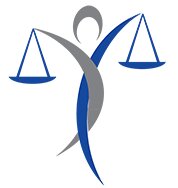Best Native People Lawyers in San Fernando
Share your needs with us, get contacted by law firms.
Free. Takes 2 min.
List of the best lawyers in San Fernando, Trinidad and Tobago
About Native People Law in San Fernando, Trinidad and Tobago
Native People in San Fernando, Trinidad and Tobago refer to the indigenous population of the region, including Amerindian tribes such as the Caribs and Arawaks. These groups have unique cultural traditions and are recognized as part of the country's heritage. Legal issues related to Native People often involve land rights, cultural heritage protection, and social welfare.
Why You May Need a Lawyer
You may need a lawyer specializing in Native People law in San Fernando, Trinidad and Tobago if you are facing disputes over land ownership, seeking to protect traditional cultural practices, or navigating government policies related to indigenous rights. A lawyer can provide legal advice, represent you in court, and ensure your rights are protected.
Local Laws Overview
Local laws in San Fernando, Trinidad and Tobago recognize the rights of Native People to land ownership, cultural preservation, and social services. The Indigenous Peoples Policy framework provides guidelines for the protection and promotion of indigenous rights. Additionally, the Property Act and Land Reform Act govern issues related to land tenure and ownership.
Frequently Asked Questions
1. What land rights do Native People in San Fernando, Trinidad and Tobago have?
Native People in San Fernando, Trinidad and Tobago have collective land rights based on ancestral ownership. These rights are recognized and protected under the law.
2. Can Native People practice their traditional cultural activities?
Yes, Native People in San Fernando, Trinidad and Tobago have the right to practice their traditional cultural activities, including ceremonies, language, and customs.
3. How can I protect my cultural heritage as a Native Person in San Fernando, Trinidad and Tobago?
You can protect your cultural heritage by registering traditional knowledge and artifacts, participating in cultural preservation programs, and seeking legal advice on intellectual property rights.
4. What government services are available to Native People in San Fernando, Trinidad and Tobago?
Government services for Native People in San Fernando, Trinidad and Tobago include healthcare, education, housing, and social welfare programs specifically tailored to indigenous communities.
5. Are there restrictions on land use for Native People in San Fernando, Trinidad and Tobago?
There may be restrictions on land use for Native People in San Fernando, Trinidad and Tobago to protect environmental conservation areas or cultural heritage sites. It is important to consult with legal experts to understand these restrictions.
6. How can I resolve disputes over land ownership as a Native Person in San Fernando, Trinidad and Tobago?
You can resolve disputes over land ownership by seeking legal assistance, engaging in mediation or arbitration, and filing a lawsuit if necessary to protect your rights.
7. Are there organizations that provide legal aid to Native People in San Fernando, Trinidad and Tobago?
Yes, there are legal aid organizations that specialize in providing assistance to Native People in San Fernando, Trinidad and Tobago. These organizations offer free or low-cost legal services to indigenous communities.
8. Can I draft a will to pass down my ancestral land rights as a Native Person in San Fernando, Trinidad and Tobago?
Yes, you can draft a will to pass down your ancestral land rights to future generations as a Native Person in San Fernando, Trinidad and Tobago. It is advisable to seek legal advice to ensure the validity of your will.
9. How can I access government programs for housing assistance as a Native Person in San Fernando, Trinidad and Tobago?
You can access government programs for housing assistance by contacting the Ministry of Housing and Urban Development or local housing authorities. They provide information on eligibility criteria and application procedures for indigenous communities.
10. What steps can I take to protect my rights as a Native Person in San Fernando, Trinidad and Tobago?
You can protect your rights as a Native Person in San Fernando, Trinidad and Tobago by staying informed about legal developments, seeking legal advice when needed, participating in community advocacy, and engaging with government authorities to address your concerns.
Additional Resources
For additional resources on Native People in San Fernando, Trinidad and Tobago, you can contact the Ministry of Community Development, Culture, and the Arts, the National Council of Indian Culture, or local indigenous associations for support and information.
Next Steps
If you require legal assistance in matters related to Native People in San Fernando, Trinidad and Tobago, it is recommended to contact a lawyer specializing in indigenous rights and land issues. They can provide personalized guidance and representation to protect your rights and interests within the legal system.
Lawzana helps you find the best lawyers and law firms in San Fernando through a curated and pre-screened list of qualified legal professionals. Our platform offers rankings and detailed profiles of attorneys and law firms, allowing you to compare based on practice areas, including Native People, experience, and client feedback.
Each profile includes a description of the firm's areas of practice, client reviews, team members and partners, year of establishment, spoken languages, office locations, contact information, social media presence, and any published articles or resources. Most firms on our platform speak English and are experienced in both local and international legal matters.
Get a quote from top-rated law firms in San Fernando, Trinidad and Tobago — quickly, securely, and without unnecessary hassle.
Disclaimer:
The information provided on this page is for general informational purposes only and does not constitute legal advice. While we strive to ensure the accuracy and relevance of the content, legal information may change over time, and interpretations of the law can vary. You should always consult with a qualified legal professional for advice specific to your situation.
We disclaim all liability for actions taken or not taken based on the content of this page. If you believe any information is incorrect or outdated, please contact us, and we will review and update it where appropriate.











